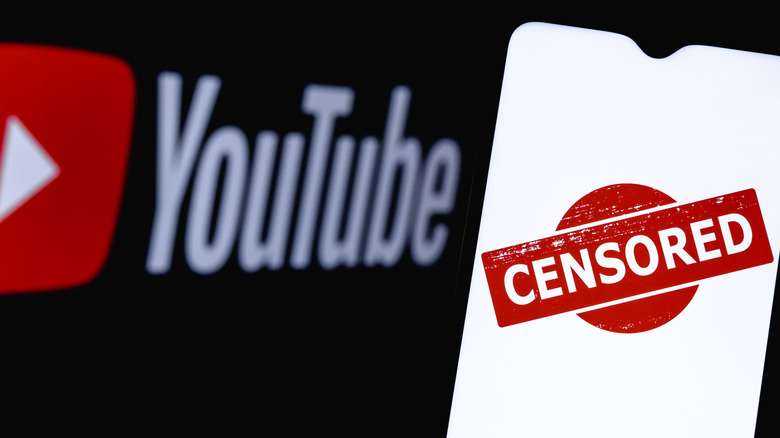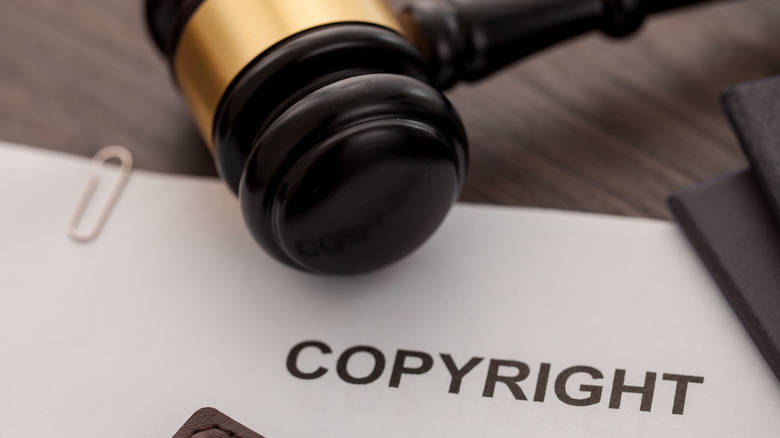Why YouTubers Hate YouTube's Copyright Policies
Copyright laws and policies are tricky to say the least. Slipping up when working with copyrights and copyrighted materials can result in the infringer being handed fines between $200 and $150,000 for every copyrighted material that's been infringed upon, per Purdue University. Copyright laws apply to art, music, photographs, and more, and they even bring into question whether some tattoo designs are illegal to get if they include copyrighted material. Believe it or not, Kat Von D was even sued over one of her tattoos.
Copyright law is its own branch within the law with lawyers specializing in it not only because it's a vast field but also because copyright cases are so common in court. Meghan Markle's huge legal win against Associated Papers was a case of copyright infringement, for example. Some of those most subjected to copyright challenges are YouTubers, though.
According to Dummies, YouTubers often incorporate copyrighted materials into their videos for three main reasons: commentary, parody, and criticism. These three, if done properly, fall under what the law calls fair use, meaning people can use copyrighted materials for these purposes without obtaining explicit permission from the copyright holder. This is one reason why movie, television, and film reviews are so popular on YouTube. They fall under the commentary and/or criticism pillars of fair use and are usually acceptable on YouTube's platform.
Still, YouTube's algorithm when it comes to copyright isn't not the friend of YouTubers.
Does YouTube delete channels over copyright infringement?
YouTubers typically employ copyrighted materials as enhancements to their own videos, but YouTube's algorithm often picks up on copyrighted materials and "flags" these videos. Videos can also be manually flagged by people if their copyrighted material appears in a video. This has been an issue for several years according to Forbes, and the problem is only getting worse.
When a video is flagged for a copyright violation, the video's ads are removed, meaning the YouTuber no longer makes ad revenue from the video. In some cases, the copyright holder simply requests partial profit from the video, but in harsher cases, videos get indefinitely taken down or remain on the platform but without ads. In either case, the YouTuber financially suffers for what might have been 10 seconds of an Ariana Grande song playing in the background of a restaurant while vlogging, for example.
The problem has escalated the most within the music industry (via The Verge). One of the biggest sectors of videos on YouTube is music reactions, which include short snippets of each song to which the YouTuber's reacting. These get flagged, but YouTube channels that amass many YouTube-defined copyright violations face channel deletion, creating a very risky game for content creators. The same has been happening to educational channels that use short media clips in their lessons despite education typically being protected under fair use, per Dummies.
Ultimately, YouTube's copyright policy aligns much more with corporate America than with content creators who are often trying their best to create compelling content on comparatively smaller budgets — and their channels, no matter the subscriber count, can get deleted.

